MercoPress. South Atlantic News Agency
Tag: Humpback whales
-
Tuesday, June 18th 2024 - 11:58 UTC
State of Cetaceans 2024, ORCA report in oceans worldwide
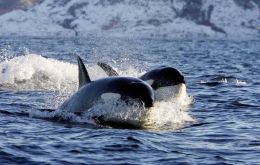
Marine Conservation Charity ORCA’s “State of the Cetaceans 2024”, (*) report is a fascinating glimpse into how the world’s whales and dolphins are coping with human impacts on the ocean. It analyses the extraordinary 330,000 kilometers of marine surveys conducted by ORCA in 2023, recording 55,604 whales and dolphins in oceans worldwide from the Arctic to the Antarctic, the North and South Atlantic, and the Pacific to the Mediterranean.
-
Tuesday, October 19th 2021 - 09:09 UTC
Humpback whales recovering on their feeding grounds in the South Atlantic
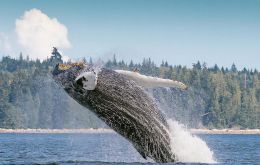
Humpback whale populations are strongly recovering on their feeding grounds in the South Atlantic, with over 24,543 whales now estimated to use polar waters in the Scotia Arc each summer.
-
Friday, September 3rd 2021 - 08:04 UTC
South Georgia stamp release to celebrate the return of whales to the recovered ecosystem
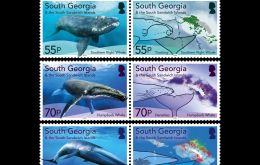
The Government of South Georgia & the South Sandwich Islands announced the release of a new stamp set to celebrate the recovering ecosystem of the Territory and in particular whales, according to the latest edition of the South Georgia and South Sandwich Islands Government Newsletter.
-
Tuesday, August 3rd 2021 - 19:51 UTC
Southern right whales at South Georgia acoustic messages, BAS Project report
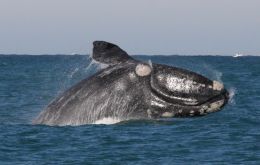
Scientists from British Antarctic Survey (BAS), Scottish Association for Marine Science (SAMS), and international collaborators have this week published the first detailed research on the sounds made by southern right whales on their high latitude feeding grounds at South Georgia.
-
Friday, November 6th 2020 - 09:19 UTC
Humpback whales are back in South Georgia, after almost extinction a century ago
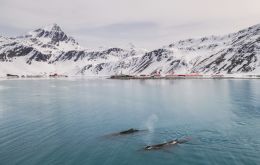
A new study shows the welcome return of humpback whales to the waters around the sub-Antarctic island of South Georgia after a century of commercial whaling decimated their populations. The study is published in the journal Endangered Species Research this week and is good news for whale conservation.
-
Thursday, November 5th 2020 - 09:07 UTC
Close encounter of two kayakers with a humpback whale off California

Whale watchers in Avila Beach, California had a close encounter with a humpback whale as the marine giant almost swallowed two kayakers. The event was caught in the video and has made its round on the internet.
-
Friday, October 18th 2019 - 09:29 UTC
Humpback whales in the SW Atlantic total some 25.000, NOAA survey
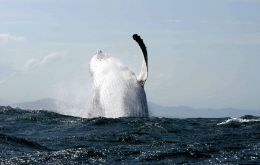
One of the whale populations taken to the edge of extinction by commercial hunting in the early 20th Century has essentially recovered its numbers. It's estimated the humpbacks that frequent the southwest Atlantic once totaled perhaps 27,000 animals.
-
Wednesday, May 4th 2016 - 22:17 UTC
“Whale recovery in Falklands” and an explosion of sightings
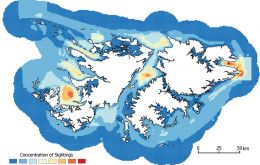
”Whale recovery in Falklands’ waters was the subject of an article in Penguin News in October last year. It outlined the Marine Spatial Planning team’s efforts to capture the story of the mammal’s recovery.
-
Wednesday, September 30th 2015 - 07:25 UTC
Blue whales reported to be back in Barents Sea after a century
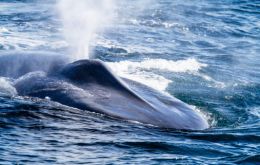
Blue whales are returning to the Barents Sea in the area of Svalbard, according to employees of Holland's Institute of Sea Research. The 17 species spotted means the mammals are returning to the region after a century of absence.
-
Saturday, May 24th 2014 - 00:16 UTC
Humpback whales in different oceans should be recognized as separate species, says genetic study
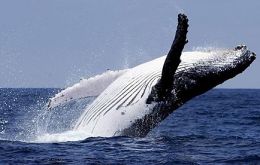
A new genetic study has revealed that populations of humpback whales in the oceans of the North Pacific, North Atlantic and Southern Hemisphere are much more distinct from each other than previously thought, and should be recognized as separate subspecies.
